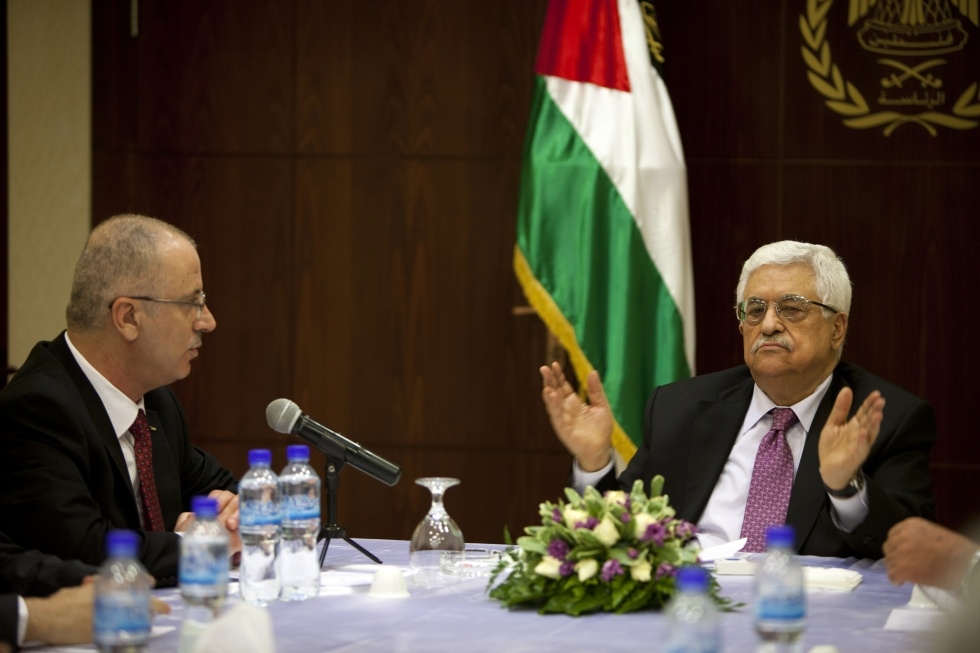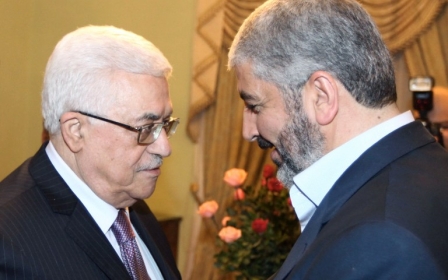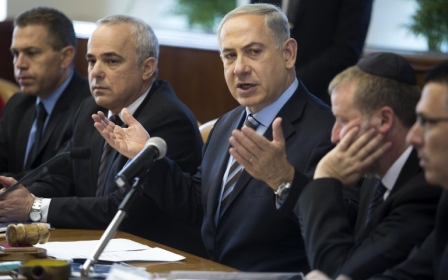Israel rejects unity government as cracks appear in Hamas-Fatah deal

Palestine’s new unity government appeared to be facing major challenges on Tuesday, only a day after it was sworn in at the Presidential Palace in Ramallah.
Despite earlier suggestions that a deal had been struck over the controversial issue of the Prisoners’ Affairs Ministry, internal tensions between Hamas, which rules Gaza, and Fatah, in charge of the West Bank, began to emerge.
Israeli authorities also stepped up their anti-unity deal rhetoric, with the cabinet issuing a joint statement late Monday vowing to “oppose the participation of terrorist organisations in the elections”, in a reference to Hamas' inclusion in the unity deal.
Their resistance came despite a cautiously positive response from the US state department in which it said it would work with the unity government, while monitoring the situation very carefully.
Prisoners’ Affairs Ministry
The row over the Prisoners’ Affairs Ministry surfaced again late Monday after the first cabinet meeting concluded in Ramallah.
Following the meet, the newly sworn in Prime Minister Rami Hamdallah, who is serving a third term, announced that his new government would completely reform the Prisoners’ Affairs Ministry, turning it into an independent body affiliated with the PLO.
The announcement was met with hostility from Hamas' official spokesperson Salah al-Bardawil, who slammed the decision, saying that Hamdallah had “turned against” the agreement between the two disparate factions.
Bardawil told Palestinian Maan news agency that Hamdallah’s decision to dissolve the Prisoners’ Affairs Ministry was “blatant meddling”.
The ministry’s work is highly sensitive, as Israel designates Palestinians held in its prisons as “terrorists”, and rejects any support given to them or their families, reports Reuters.
The fate of the ministry, which gave financial support to the families of Palestinians detained in Israeli prisons, has been a major sticking point for negotiations between Hamas and Fatah in the runup to the unity cabinet announcement.
Abbas had originally announced plans to dissolve the ministry, which prompted Hamas to threaten to pull out of the deal hours before the unity government was due to be sworn in.
In an 11th hour compromise, Abbas then announced that the ministry would be allowed to continue its work, albeit as an independent body, in a move intended to placate the international community.
However, Hamdallah’s statement after the ceremony suggests that the issue remains a point of contention.
Ilan Pappe, a professor at Exeter University and political analyst who spoke to MEE after Monday’s swearing-in ceremony, explained that Fatah may have misjudged the international mood.
“In the Israeli narrative, every such prisoner is a terrorist, but this is no longer accepted by the international community,” Pappe said.
“The international community is not going to boycott the unity government because prisoners are getting financial support from the ministry.”
Israeli opposition continues
Despite wrangling and possible concessions over the contentious ministry, however, the Israeli cabinet continued to oppose the new government.
There are reports on Tuesday that Israel is revoking travel permits for all Palestinian Authority officials apart from Mahmoud Abbas.
According to the Times of Israel, a Palestinian official also mentioned warnings from Israel that it would withhold tax revenues, estimated at $100m, from the PA.
After the US announced its cautious support for Abbas’s new cabinet on Monday, Israeli Prime Minister Netanyahu said he would not hold negotiations with the Hamas-Fatah coalition.
His government’s security cabinet held a two-hour meeting, stating afterwards that “Israel will work, including in the international arena, to oppose the participation of terrorist organisations in the elections.”
In spite of the strong stance on elections, however, Israel did not refuse to recognise the new government, and nor did it freeze contact completely with Abbas.
Neve Gordon, a leading Israeli academic, said that Netanyahu is against the reconciliation because it threatens Israel’s rule in Palestine.
According to Gordon, Netanyahu considered the seven-year split between Gaza and Hamas “a god-send”, and therefore rejects the unity deal.
West Bank clash
Tensions continue to be high on the ground. On Monday night, a Palestinian man was shot and killed by the Israeli army, allegedly after opening fire at an Israeli army checkpoint southeast of Nablus.
The Israeli army spokesperson Peter Lerner wrote on Twitter that a “Palestinian gunman opened fire and wounded a border policeman at Tapuah checkpoint.”
“Forces returned fire, killing the perpetrator.”
He later published a Tweet giving his response to the unity deal.
“My answer on Palestine unity: when you incorporate a terrorist organisation that promotes violence it sends a certain message.”
Middle East Eye propose une couverture et une analyse indépendantes et incomparables du Moyen-Orient, de l’Afrique du Nord et d’autres régions du monde. Pour en savoir plus sur la reprise de ce contenu et les frais qui s’appliquent, veuillez remplir ce formulaire [en anglais]. Pour en savoir plus sur MEE, cliquez ici [en anglais].




